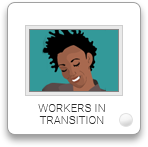Careers In Culture
Film and Broadcasting - What You Need to Do
Career Routes
On this page:
- Get a Head Start On Your Film And Broadcasting Career
- Hands-on Experience
- Your Education Can Take You Places
Get a Head Start On Your Film And Broadcasting Career
You have a passion for live radio. Maybe you've always wanted to be in film or broadcasting. Whatever area of film and broadcasting you want to pursue, you have the choice of a wide range of occupations and career paths. Depending on your talents, interests and skills, you could be a creator, a producer, a technical worker or an administrator. The choice is up to you.
Whatever you career goal in film or broadcasting, you'll find yourself in a very competitive job market. What is the best strategy to break in? How can you get started? Read on to find out how you can stand out from the crowd.
Network Your Way to Work
Most people get their first film or broadcasting job through a contact – an acquaintance who knows about an unadvertised job or where work can be found. How can you make these very important contacts? It's easier than you think. The answer is – make yourself visible. The only way people will know about you is because you're already working, either through your school projects or your volunteer work. Here are some tips to building a network:
- Be an enthusiastic worker. If you're willing to try anything and enjoy what you're doing, people will remember you.
- Be curious about others. Your network is not just about you. Have a genuine interest in what others do and enjoy learning from them.
- Stay in touch. Relationships need constant work. Give your contacts a call now and then, and ask them how they're doing. Tell them what you're up to.
Build Your Knowledge
If you want to work in this field, lit is important to earn as much as you can, to continually update your skills and to embrace life-long learning. For example:
Build Your Knowledge
Want to Work in Film?
Become a film 'know-it-all.' See as many movies as you can, read the trade publications, study film scripts, know the gossip.
Do You Love Television?
Analyze your favourite programs, read as much as you can about how programs get made, find out about the business of television- the key players, the ratings, the advertisers.
Is Radio Your Career Path?
Careful listening is key. Hear and analyze the voices. Study programs you enjoy- the content, the structure, the approach, and how the voices and sounds are mixed to achieve the best effect.
Want to Become a Podcaster?
Listen to diverse broadcasts from indie producers. Analyze the web design, programming and other technical components in a range of podcasts, blogs and other web spaces designed to allow and encourage sharing of independent audio and video productions. Note differences in the quality, look and feel of user generated content compared to those of professional podcasters and broadcasters.
Want to Develop Professionally?
Seek out training and workshop opportunities. Consider a special program of study offered to workers in the field. Take advantage of professional development opportunities offered by film and broadcasting organizations and professional associations.
Hands-on Experience
Everyone who hires in film and broadcasting wants applicants who already have experience, whether volunteer or professional. Remember to ensure that any volunteer work you do fits under the guidelines of the unions or professional associations involved in the productions. Use the following checklist to consider other ways to get hands-on experience.
Openings for Openers
 |
If I'm a student, I could...
|
 |
If I'm an artist, I could...
|
 |
If I want to move into this work from another sector, I could...
|
Mentors and Internships
Working in the field in the area of your interest is a great way of gaining expertise from already-seasoned workers. Look around in your own workplace to find a skilled and cooperative mentor, who is happy to share his/her expertise and experience. Internships are sometimes arranged between film study programs and local production houses. But opportunities are few and often limited by union agreements. Check out the CFTPA’s National Mentorship Program. You’ll have to be resourceful to find an intern or mentoring position; if you do, it can provide excellent new experiences.
Your Education Can Take You Places
There are many ways to enter a career in film and broadcasting. The key to today's job market is to be as multi-skilled as you can. If you're just starting to think about your film or broadcasting career, then you're probably wondering where to get the education and training you'll need. There are generally four different educational routes to careers in film and broadcasting. No one route is better than another, and you'll find successful professionals who have come from each educational area.
- Universities offer three-to four-year programs that provide a broad education in an area of interest.
- Colleges/Cégeps provide two-to three-year programs that focus on practical skills needed in an area of interest.
- Post-graduate schools and private companies offer specific training; for example INIS, NSI, CFC) and Parlimage.
- National professional training institutions offer intense programs of varying lengths, usually for performers.
- Film and broadcasting unions, such as IATSE and AQTIS, offer training programs. Studios allow performers to create their own training "programs" by mixing and matching courses from different instructors.
Search the lists that follow for examples of the combinations of education and experience that can lead to a fascinating career in film and broadcasting.
Learning Paths
University degree + college certificate or diploma in technical / creative writing, journalism or broadcasting + experience
- Animation scriptwriter
- Dialogue coach
- Researcher
- Screenwriter
- Scriptwriter
University degree or college diploma in fine art, graphic design, film production or performing arts + experience
- Animator
- Lighting designer
- Multimedia designer
- Sound designer
University degree in music + specialized training + experience
- Arranger
- Composer
- Conductor
- Musician
Your artistic talent
- specialized training + experience
- Costume designer
- Make-up artist
- Songwriter
University degree or college diploma in performing arts or journalism + experience
- Actor
- Performer / speaker
- Vocalist
- Voice-over artist
University degree in film studies, broadcasting or journalism + experience
- Cinematographer
- Director
- Host
- Reporter
College / CEGEP diploma or university degree in fine art or graphic design + experience
- Production illustrator
- Set designer
College / CEGEP diploma in digital arts or media arts and film production + experience
- Dubbing mixer
- Lighting designer
- Film / tape editor
- Re-recording mixer
- Film dubber
- Sound designer
- Foley artist
- Sound editor / mixer
- Grip / gaffer
- Special effects technician
College / CEGEP diploma in film production or + experience
- Camera operator
- Set builder/carpenter/painter
- Continuity
- Stagehand
- First assistant director
- Stunt co-ordinator/stunt person
- Location manager
- Warehouse manager
- Property master
- Wrangler
College / CEGEP diploma in broadcasting + an interest in audio technology
- ADR (automatic dialogue replacement) supervisor
- Audio / sound recording engineer
- Broadcast engineer
- Telecasting technician
Artistic talent + specialized training + experience
- Costume & wardrobe co-ordinator
- Costume designer / sewer / ager / distresser
- Wardrobe supervisor / dresser / attendant
University degree + College / CEGEP diploma in business / marketing + experience
- Casting director
- Production manager
- Executive producer
- Video studio operator
- Marketing director
University degree + College / CEGEP diploma in technical/creative writing, journalism or broadcasting + experience
- Programmer
- Script editor
- Radio announcer
- Script supervisor
University degree or College / CEGEP diploma in business / management, marketing or public relations + experience
- Advertising sales manager
- Box office manager
- Marketing and distribution manager
- Presenter
- Publicist
- Rights sales manager
- Sales co-ordinator
- Station manager
- Television audience relations specialist
University degree or College / CEGEP diploma in multimedia, graphic design or computer science + experience
- Web analyst / developer
- Web designer
University degree or College / CEGEP diploma in library, information and archival studies, or archival or library technology • experience
- Archivist
- Conservator
- Film / Radio archivist
University degree in history or film studies + experience
- Film historian
- Film restorer
University degree or College / CEGEP diploma in business, management, marketing or public relations + experience
- Agreement administrator
- Casting agent
University degree in accounting specialized training + experience
- Manager
- Specialized accountant
A law degree + specialized training in entertainment law + experience
- Entertainment lawyer
Want to learn more about educational programs and schools? Talk to:
- People working in film and broadcasting companies.
- Local film and video co-ops and guilds.
- A teacher or career/guidance counsellor.
- The professional organizations listed on this website.